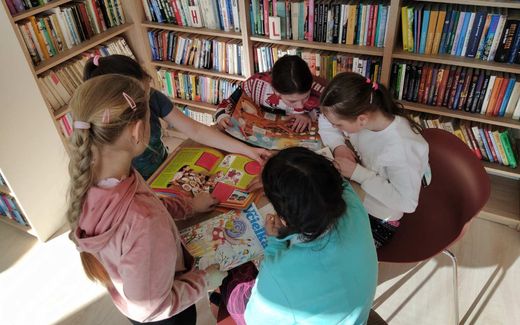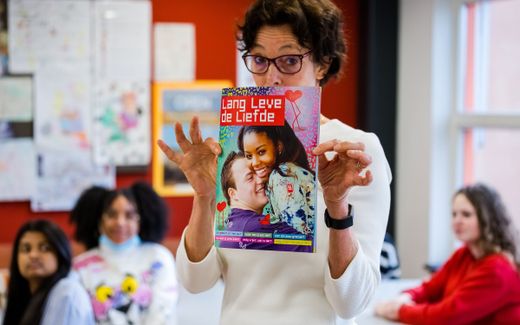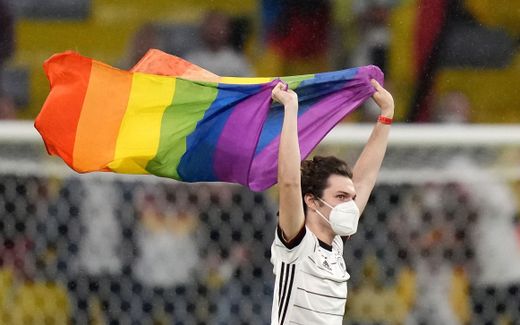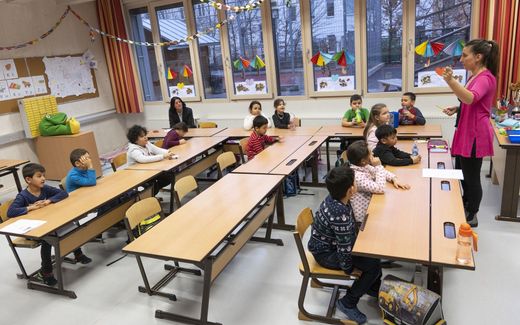Poland bans “sexualisation of children” from schools
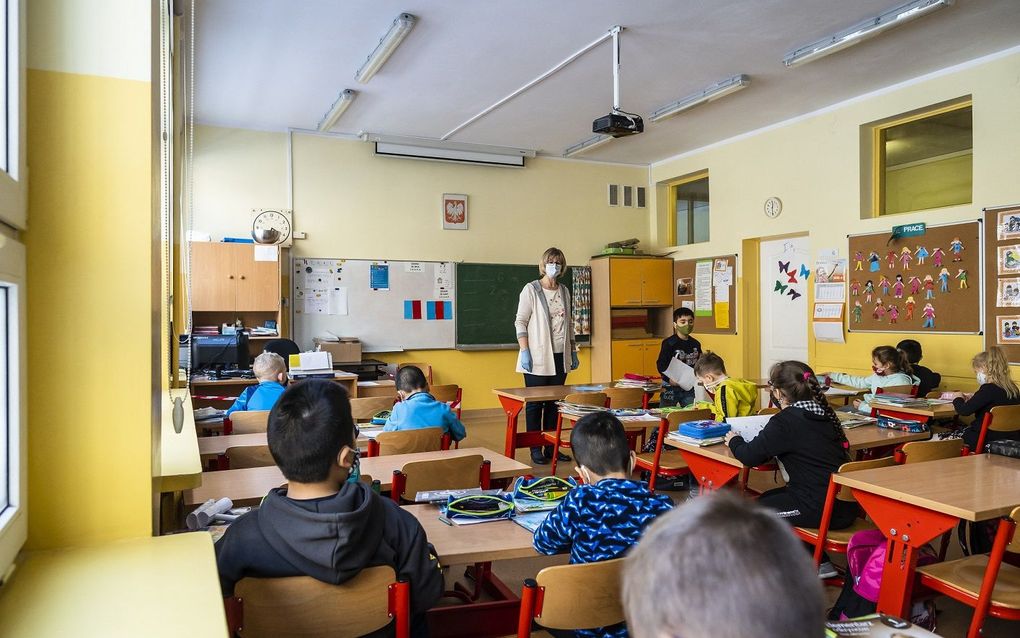
A teacher and first grade children in a classroom in the primary school number 25 in Warsaw. Photo AFP, Wojtek Radwanski
Central Europe
Organisations that promote “the sexualisation of children” are forbidden to enter schools and preschools. The Polish Parliament has approved new legislation to that end, but opposition parties are critical.
The latter see the proposal from the ruling PiS party as another attempt to restrict sexual education in the classroom, Notes from Poland writes.
Last year, the same happened as Parliament passed to similar bills, the news website reports. However, at the time, the Polish President vetoed them, because he believed that the initiatives lacked “social acceptance” among the population. The latter can be shown through a so-called citizen's legislative initiative. That means that the proposal must come from outside the Parliament and be supported by at least 100,000 public signatures to be considered.
The new proposal includes some of the ideas from the earlier bills, such as the requirement that NGOs visiting schools must submit information about the content of their guest lessons tot he principal.
Definition
However, the previous bills specified that a government official should decide which organisations could enter the schools. This is different in the proposal, as it only bans groups that “promote issues related to the sexualisation of children.” The definition of sexualisation is left open. The Left, one of the opposition parties, proposed to define the term and also apply the obligations to churches and other religious associations. However, the proposal was rejected.
In total, 243 MPs voted in favour of the bill, while 202 spoke out against. Opposition politician Dorota Łoboda objected that the conservative PiS party deliberately mixes up sexualisation, “which is perceiving another person through the prism of sexual attractiveness” and sex education, “which means “imparting knowledge about human sexuality”. She told the Polish broadcaster TVN that there is no NGO that has sexualisation of children as its goal.
Deprave
Education Minister Przemysław Czarnek argues that school is a place where teachers work and if anyone else wants to work at school, they must say what they want to teach. “Do you know why they have a problem with that?” he asked the Parliament. “Because they actually want to sexualise, they want to deprave, they want to distort the consciences and minds of children.”
The bill now has to go through the upper house of the Parliament. There, the opposition has a majority, but it cannot overrule the lower house. Finally, President Duda has to sign it, unless he vetoes it.
Conservative view on sexuality
Sex is for marriage. That is one of the lessons taught in Polish schools. The Polish Agata Michalska remembers how her teacher would answer all questions related to sexuality with the statement when she was in high school. The WDZ classes, which come closest to sex ed, according to Notes from Poland were not taught by people specialised in teaching these topics. Instead, the school librarian was to give the knowledge to the students at Agata's school. “It was easy to see that she did not have a lot of knowledge on this. You could tell that they just put in a teacher who has some free hours available.”
In the meantime, the attendance of WDZ classes continues to decline. This is partly because students don't want the lessons to be taught by religious teachers, teacher Katarzyna Jaworska from Lublin believes. “There is probably church indoctrination about abortion, homophobia, prohibition or contraception”, she says to Notes from Poland. WDZ classes led by qualified teachers for sex education and biology teachers scored much higher in a survey.
Polish sexual education classes are based on Christian values, Notes from Poland writes. Typically, they consist of three approaches. The classes promote abstinence as the primary form of anti-conception and encourage students to save sex for marriage.
The textbook that is used in the WDZ classes is authored by conservative writers, such as Magdalena Guziak-Nowak, who is the education director of a pro-life organisation.
Related Articles


